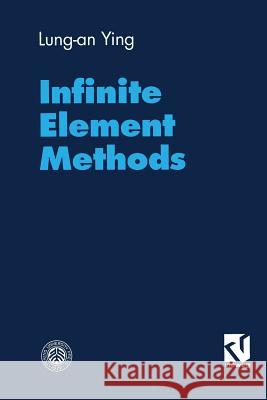Infinite Element Methods » książka
Infinite Element Methods
ISBN-13: 9783322899064 / Angielski / Miękka / 2012 / 217 str.
"As its name indicates, in the infinite element method the underlying domain is divided into infinitely many pieces. This leads to a system of infinitely many equations for infinitely many unknowns; but these can be reduced by analytical techniques to a finite system when some sort of scaling is present in the original problem. The simplest illustrative example, described carefully at the beginning of the first chapter of the book, is the solution of the Dirichlet problem in the exterior of some polygon. The exterior is subdivided into annular regions by a sequence of geometrically expanding images of the given polygon; these annuli are then further subdivided. The resulting variational equations take the form of a block tridiagonal Toeplitz matrix, with an inhomogeneous term in the zero component. Various efficient methods are described for solving such systems of equations. ... The infinfte element method is, whereever applicable, an elegant and efficient approach to solving problems in physics and engineering. Professor Yings welcome book makes it available to the community of numerical analysts and computational scientists. " (From the Preface by Peter D. Lax)Die Infinite Elemente Methode wird hauptsachlich bei der Berechnung singularer Losungen partieller Differentialgleichungen und bei deren Losung von Gleichungen auf unbeschrankten Gebieten angewandt. In dem Buch wird ein spezielles numerisches Verfahren vorgestellt, das bisher noch relativ unbekannt geblieben ist.











